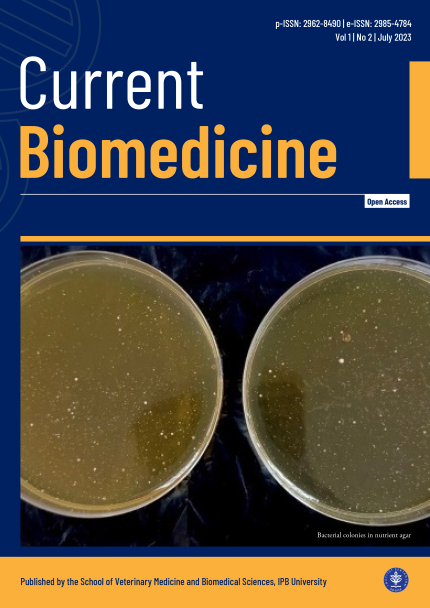Recent updates on strangles caused by Streptococcus equi subspecies equi in Indonesia
Abstract
Background: Horses have played an essential role in human life for thousands of years, including for transportation, sports, consumption, and recreation. Because of the benefits of horses and their importance to humans, the effects of horse diseases can also affect humans. One of the most frequently diagnosed infectious diseases in horses worldwide is strangles caused by the beta-hemolytic bacterium Streptococcus equi subspecies equi. Objective: This review aims to collect the latest information on strangles, including the epidemiology, diagnosis, prevention, and treatment of strangles globally and specifically in Indonesia. Results: Strangles cases have been reported sporadically in Indonesia. Laboratory diagnosis of strangles can be performed through bacteriological culture, PCR and serological tests. Streptococcus equi subspecies equi is susceptible to penicillins. Conclusion: Control of strangles can be conducted by applying biosecurity and vaccination. However, currently, there is no commercially available strangles vaccine in Indonesia.









